Liverpool have become an unquenchable force this season, but they are not just confounding the opposition this season, they are baffling both the statisticians and those who deem them lucky.
The Reds have been labelled ‘lucky’ in achieving their thus-far unbeaten record in the Premier League this season, largely based upon the number of close wins they have had and the predictive expected goals (xG) table.
But there is a convincing case these conventional and fairly superficial forms of analysis are not representing the strengths of Jurgen Klopp‘s Liverpool adequately.
One argument made back in December was that great teams tend to win by multiple goals and that Liverpool, having at that point won eight of 17 games by a one-goal margin, were riding their luck.
The odds of Liverpool winning as many games as they had at that point were estimated at one in 500.
If Liverpool were riding their luck, we could reasonably have expected it to have run out, but since then the Reds have not only remained unbeaten, they have been undefeated, accumulating 10 more wins, five of which were by a one-goal margin.
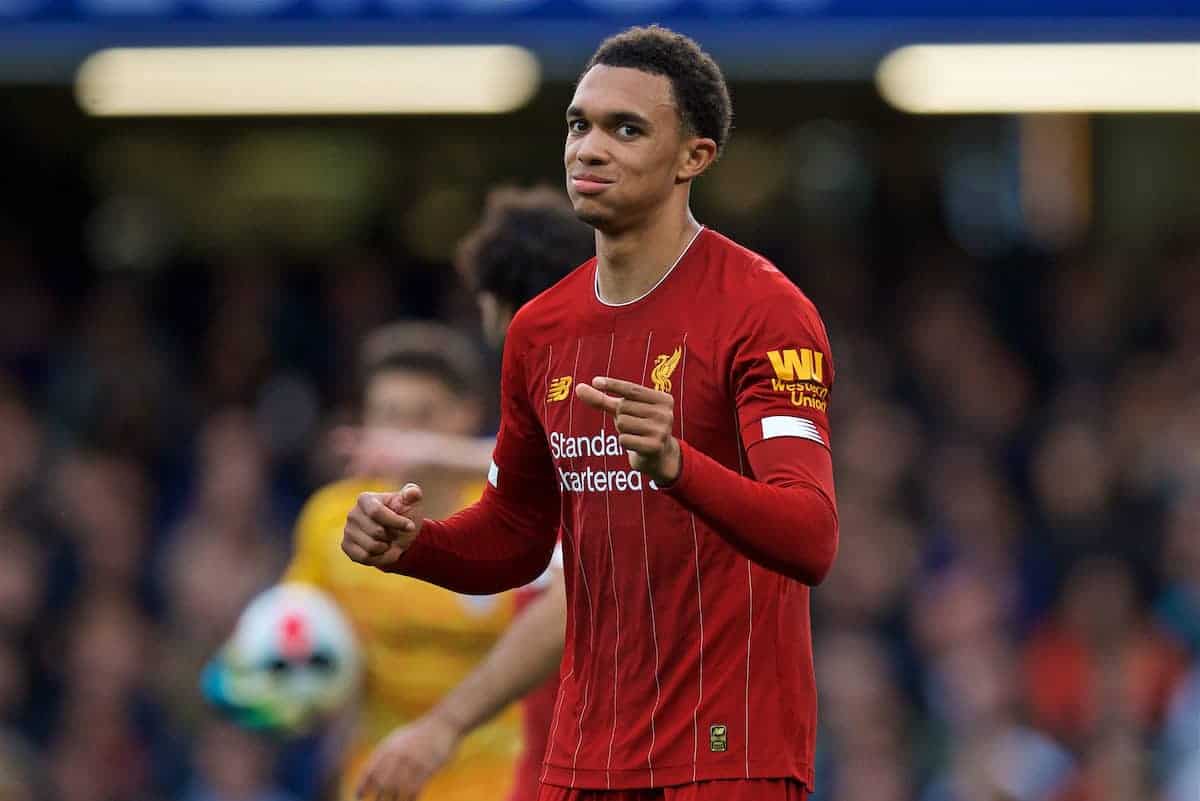
There has been a proliferation of statistics in football, both at the club level and in the world of comment and analysis, and by some broadly available metrics Liverpool appear to be ‘lucky’.
The most important of these would be the expected goals (xG) totals and predictive tables stemming from those totals.
During the winter break Liverpool’s form was reassessed and the difference between their points total in reality and in the expected goals table (that is predicted points from expected goals for and against) became evidence of ‘luck’.
Before Liverpool played Norwich, their expected points total using the expected goals statistics was 52—instead of their actual 73—while Man City topped the xG table with 55 points.
The other big improvers just below Liverpool in the xG table were Chelsea—gaining six more points—and Man United—gaining a whopping 10 further points.
An issue with relying on the xG model is it works on averages and the best teams will generally outperform the model because they have the best players, who by their very nature are often statistical anomalies.
For example, in recent years Jamie Vardy is notorious for outperforming his expected goals totals by a large margin; his finishing ability consistently exceeds what the model might expect.
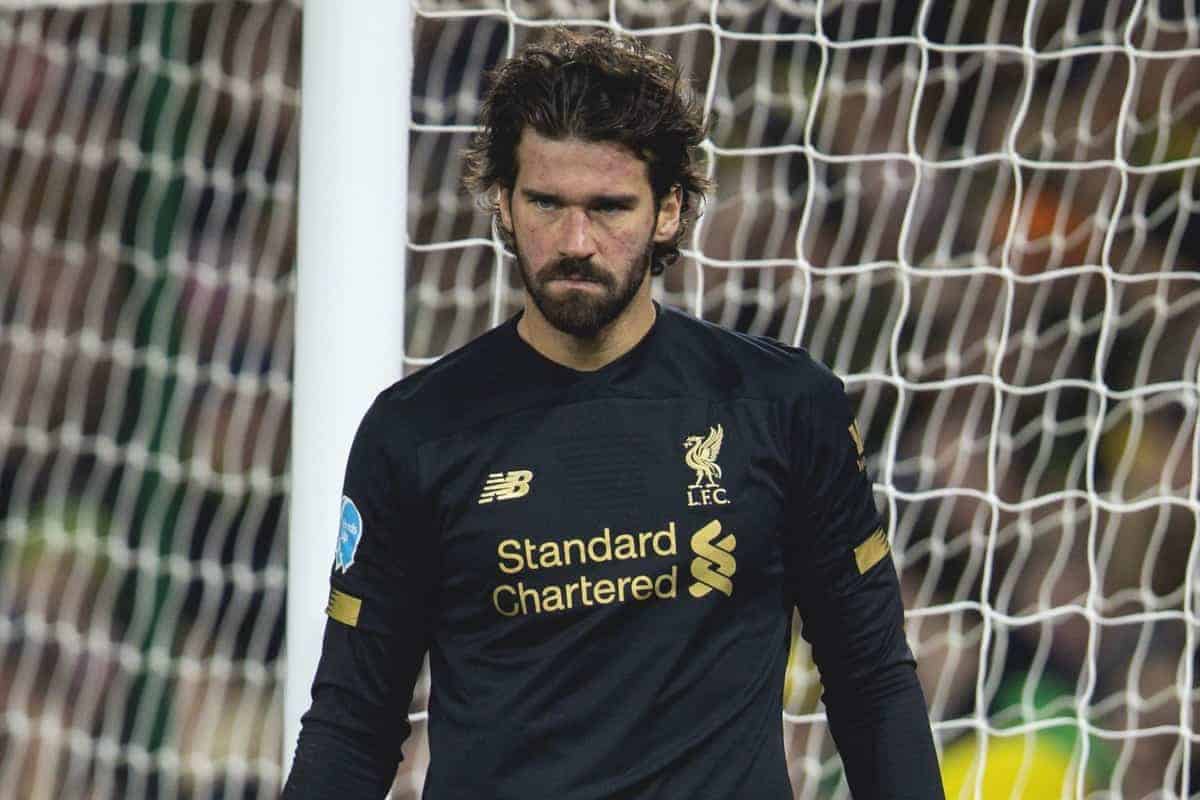
Defensively is where Liverpool have outperformed the expected goals totals most obviously, but with an excellent defence marshalled by Virgil van Dijk and Alisson—who is currently by far the best goalkeeper in the league—this might simply be a mark of their players’ quality and not ‘luck’.
As stats writer Stephen Drennan recently detailed, Alisson is saving a league-leading 87 percent of shots faced, while he is performing a massive 251 percent above what the xG model predicts.
One of the other goalkeepers who has massively outperformed over the last few years is Atletico Madrid’s Jan Oblak.
What Oblak and Alisson share, other than shot-stopping excellence, is having two of the stingiest and best-organised defences in Europe in front of them.
While the expected goals model can misrepresent individual players’ efforts as ‘lucky’ rather than simply exceptional, this and other probability-based models around overall chances and goal margins are failing to show where Liverpool really excel.
In essence, Liverpool’s superiority is their mental fortitude; their ability to both react and control the varying states a game is in.
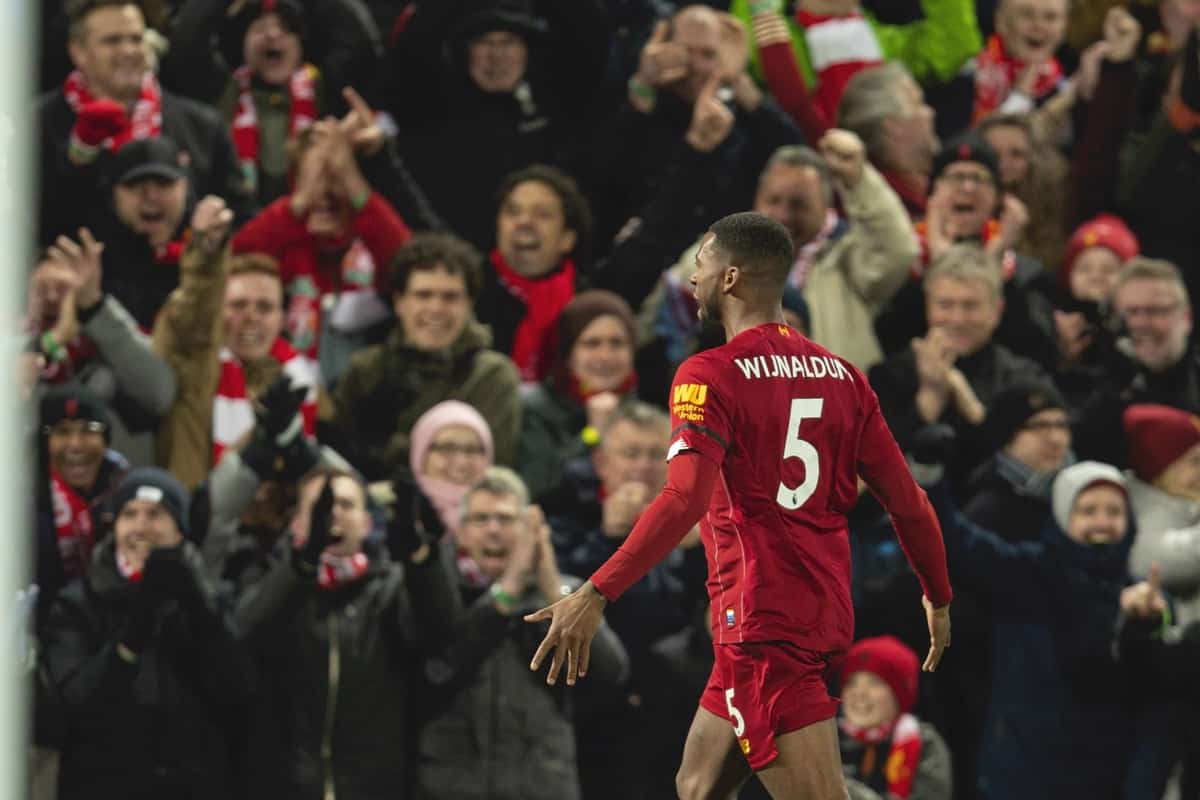
The Tomkin Times’ excellent piece covers this in extreme detail, and shows Liverpool’s dominance by examining xG in ‘game states’—that is, expected goals totals when the game is in different ‘states’ such as drawing, one goal down and so on.
Compared to Man City, two things stand out: Liverpool’s xG is lower when they are ahead by more than one goal—put simply they do not pile on the goals like City—but most notably, they are far better when they fall behind.
In fact, Liverpool’s best game state for expected goals is when they are one goal down with an xG of 1.6, while, at an xG of 1.4, their second-best state is when the game is level.
These are the statistics that should define Klopp’s mentality monsters.
To be fair to Pep Guardiola, he was ahead of the curve in realising Liverpool’s repeated comebacks and tight-game heroics were something beyond ‘luck’.
Although there were murmurings towards the end of last season that City’s backroom team considered Liverpool ‘lucky’, in the face of overwhelming evidence Guardiola has come to realise it was down to the unique character of the team, telling the media earlier this season:
“If it’s one time, two times [then it’s] ‘we were lucky, we were lucky’, but it happened in the last two seasons many, many times—they have a special character to do that.”
The secret to that “special character” is not only in Liverpool’s DNA, it is a trait Klopp has cultivated since arriving, explaining back in 2016 that “you always have to strike back.”
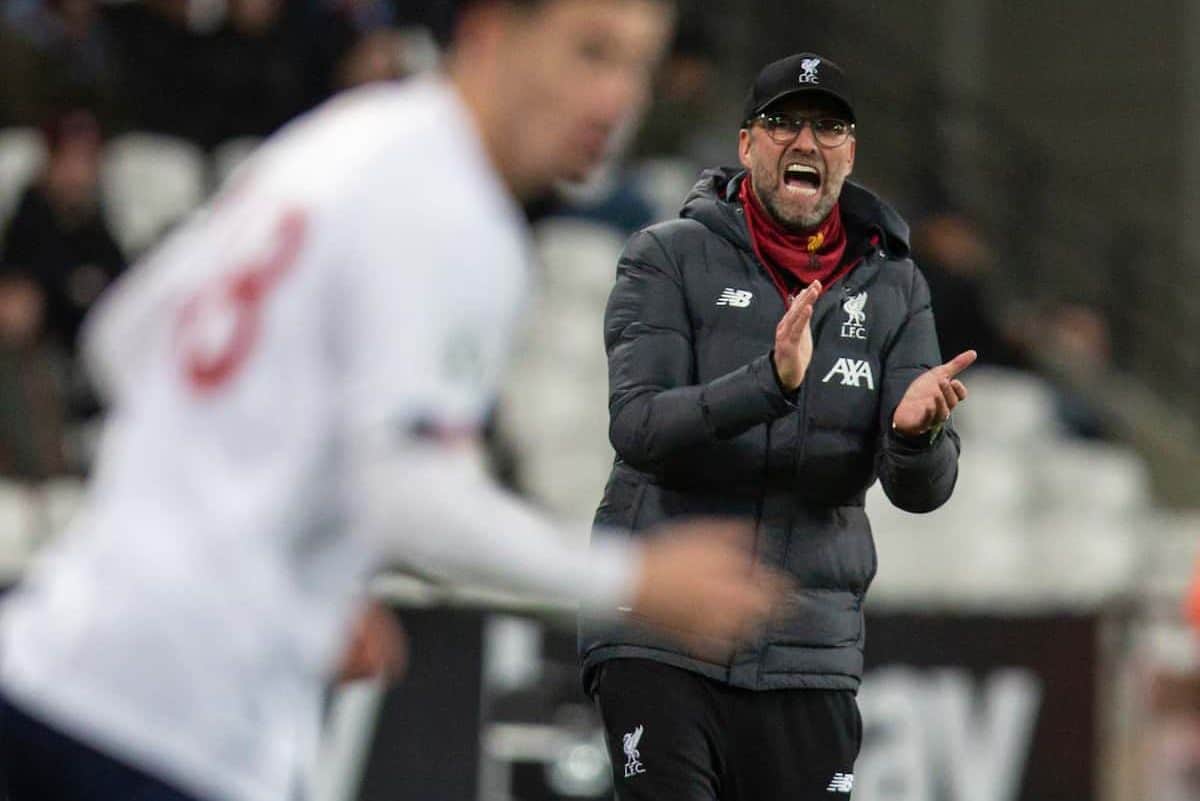
Perhaps the biggest difference in philosophies between Klopp and Guardiola is best summarised when Jurgen explained:
“We don’t go for perfection, we go for perfect reaction. We try to fight back in difficult situations in games.”
Guardiola and City plan for perfection—total football domination—but they struggle when perfection fails. In contrast, Klopp accepts perfection is unattainable, but as humans we can control how we react.
Over years Klopp and his backroom team have not only instilled a special character, they have worked to give the team the tools to react and use that character in any given situation.
Pep Lijnders has noted a key to Liverpool’s ability to react:
“What I like about our game is that we have so many different weapons and that makes us unpredictable.”
Liverpool have the ability to change the route of attack in-game to score through possession play, in transition, via set-pieces and through high-risk long balls.
The development of tactical excellence and new skills is a constant, as shown by Liverpool’s hiring of a specialist throw-in coach. Every edge is being explored; they have assembled and built a team full of quality.
But despite all this, the biggest edge of all they possess remains something special, something not always measurable.
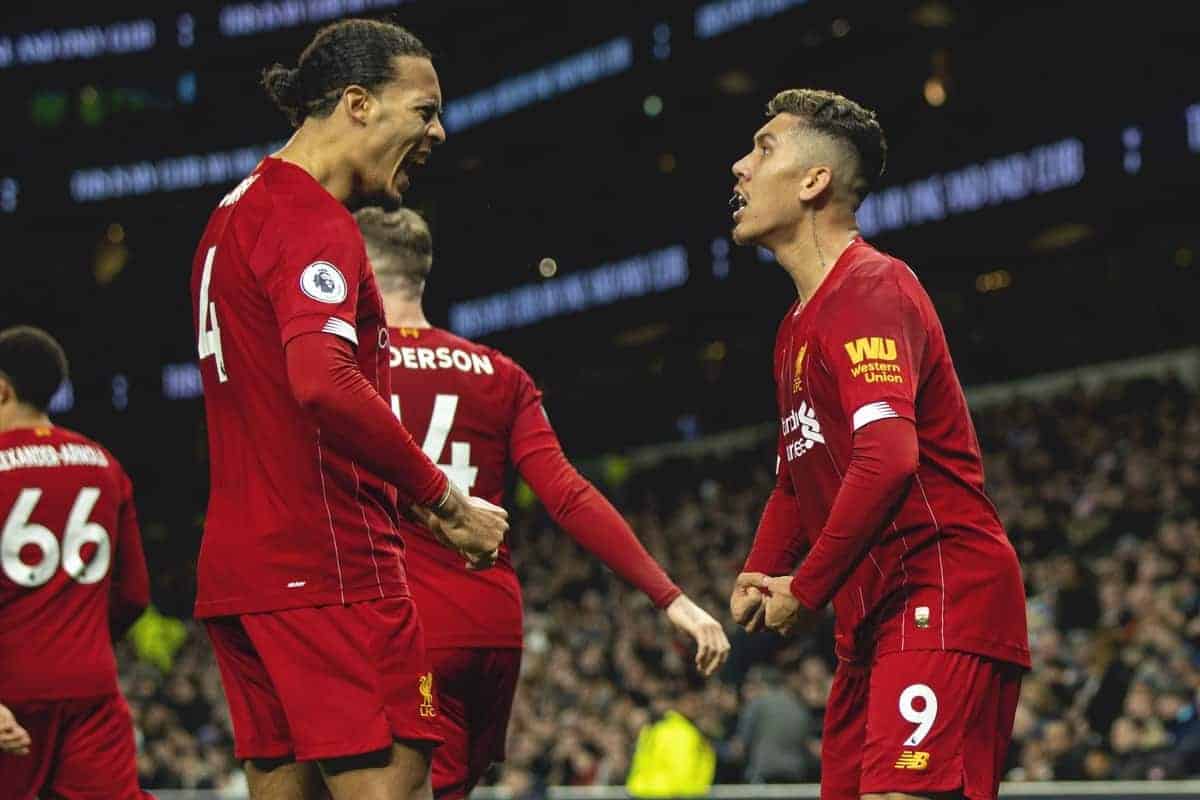
Klopp is on record as to what this edge is:
“How important is the mental side in football? It’s all, if you like, you can have the best technical ability but if you aren’t ready to show it then you can’t make the best of it.”
It is a quality that Liverpool train and exploit. Klopp reminds us of how his team “do it again, again and again”:
“That’s what happened here. It’s all about the mental strength in moments like this. It’s all about attitude and character. None of that is just given.”
As with any other skill, it is learned, and it is earned. This team is the culmination of years of hard work, of determination, of the right reaction to failures and losses.
This was no more evident than in the 3-2 comeback win over West Ham at Anfield; finding themselves in the rare situation of being 2-1 down, the Reds fought back to equalise within 14 minutes, and scored the winner after 13 more.
So, do not do this Liverpool team the disservice of calling anything they have achieved ‘lucky’.
The truth is, this group have become masters of the perfect reaction.
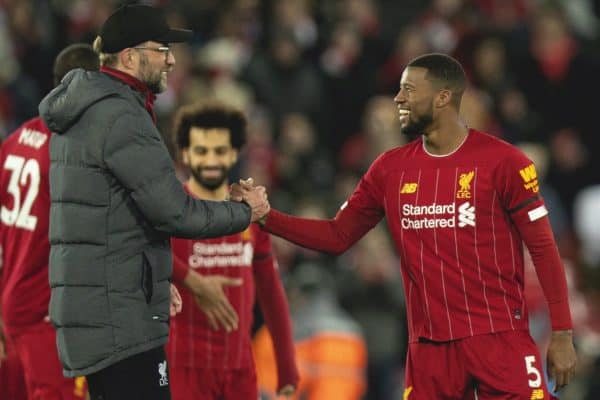





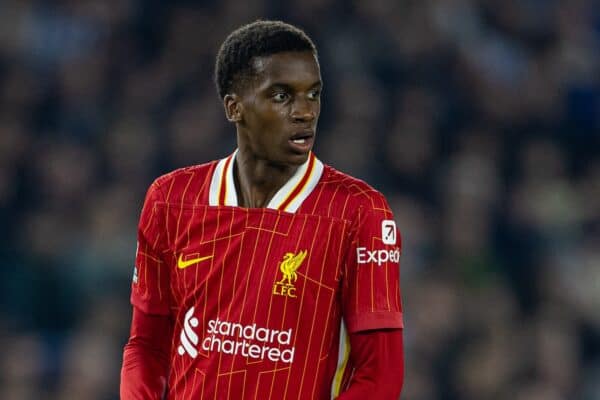








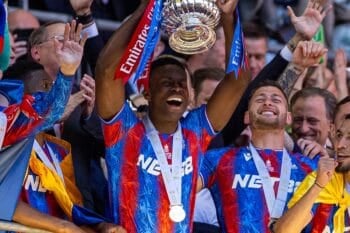

Fan Comments